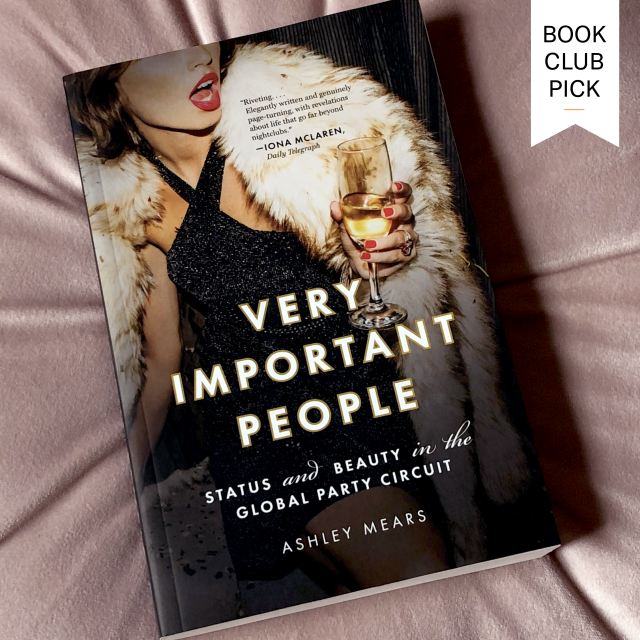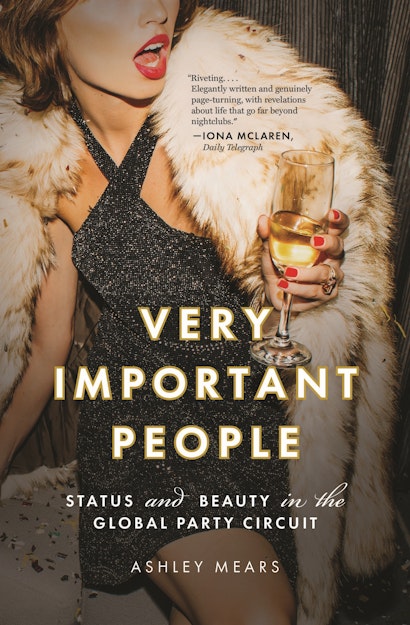Million-dollar birthday parties, megayachts on the French Riviera, and $40,000 bottles of champagne. In today’s New Gilded Age, the world’s moneyed classes have taken conspicuous consumption to new extremes. In Very Important People, sociologist, author, and former fashion model Ashley Mears takes readers inside the exclusive global nightclub and party circuit—from New York City and the Hamptons to Miami and Saint-Tropez—to reveal the intricate economy of beauty, status, and money that lies behind these spectacular displays of wealth and leisure. Mears writes that by joining a world that excludes and devalues others, women strike a patriarchal bargain. This is a fantastic potential book club opportunity to look at a world of excess and waste and what it really means to be a VIP.
Discussion Questions
- The club promoter Malcolm tells Ashley Mears, “I always said, in nightlife, it’s not what you spend, it’s what you get for free. That’s real power… . If you don’t spend a dime, that’s power.” Why does this concept not extend to the women of this world of “bottles and models”?
- It’s striking how hard the club promoters hustle to make a night feel effortless for the women they recruit. How does their work pay off in the long term?
- Mears notes that “promoters who were men were far better positioned than women to capitalize on girls’ beauty.” Why do you think money mostly stays in the hands of the men who revolve around the women?
- Though rare, there are female promoters. Discuss the ways female promoters develop their relationships with the models and beautiful women differently from the tactics the male promoters use.
- Compare and contrast the concepts of “party girls” (women who are beautiful, young, and carefree enough to be out late and often) and “good girls” (women who are beautiful and serious enough not to be out often), and note the different ways they are viewed by men in this world.
- For promoters, Mears observes that their success in the VIP world “escalated their aspirations to unattainable heights” and made it challenging for them to bridge the financial gaps between themselves and their richer clients, but many still believed it was possible. Discuss how the VIP world creates these illusions of possibility.
-
Mears writes that by joining a world that excludes and devalues others but certainly makes one feel special, women “strike a patriarchal bargain by gaining access in exchange for their own subordination as girls in the VIP world.” Does this bargain seem worth it?
-
Mears speaks to several promoters about the double-edged sword of color capital in VIP society—the advantages and disadvantages a significant number of promoters encounter by being Black. What surprised you about how race operates in this world?
-
In this world of excess and waste, clients are paying for experience not goods—which are oftentimes marked up 1,000 percent. Throughout the book, Mears vividly describes countless dinners, parties, and vacations: do these experiences seem enticing to you? If you had the money, would you spend like this?
-
Has this book changed the way you view nightlife and the concept of being a VIP?
About the Author
Ashley Mears is associate professor in the Department of Sociology and in the Women’s, Gender, and Sexuality Studies Program at Boston University. She is the author of Pricing Beauty: The Making of a Fashion Model. Her writings have appeared in the New York Times, Elle, and other publications. She lives in Boston.

